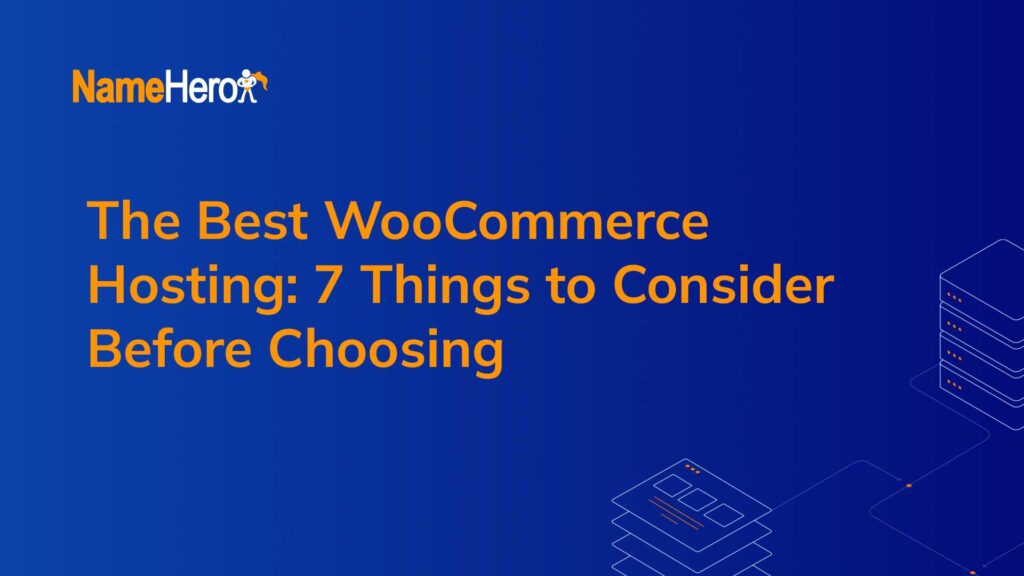Performance hosting is crucial for websites. It boosts speed and reliability.
Choosing the right hosting can be tricky, though. You need to consider several factors to ensure your website runs smoothly and efficiently. This introduction will help you understand the essentials of performance hosting. We'll explore key aspects like server resources, uptime, and scalability.
These are vital for maintaining your website’s performance. You’ll also learn about the importance of support and security features in hosting plans. Making an informed choice will enhance your website's user experience and potentially improve its search engine rankings. Let's delve into the details to make sure you pick the best performance hosting for your needs.

Credit: websitebuilder.com
Importance Of Performance Hosting
Choosing the right performance hosting for your website can be a game-changer. It's not just about having a place to store your site; it’s about ensuring it runs smoothly and efficiently. Performance hosting is crucial because it directly impacts how quickly your site loads, how users interact with it, and ultimately, how successful it becomes. But why is it so important? Let’s dive into the specifics.
Impact On Website Speed
Website speed is a vital component of performance hosting. A fast-loading site can mean the difference between a visitor staying or leaving. Imagine visiting a website and waiting ages for it to load. Frustrating, right? Slow speeds can drive potential customers away.
Performance hosting ensures your site loads quickly, keeping visitors engaged. Fast speeds can improve your search engine rankings, too. Search engines love quick sites, and so do users. Remember, your site's speed reflects on your brand's credibility. Would you trust a sluggish site?
User Experience Enhancement
How your site performs affects user experience directly. A seamless experience keeps visitors happy and encourages them to explore more. Think of the last time you navigated a site that was slow and unresponsive. You probably didn't stay long.
Performance hosting helps create a smooth user journey. It minimizes downtime and ensures your site can handle traffic spikes. This is especially important during promotions or peak times. Users expect fast responses and smooth navigation. Are you ready to meet their expectations?
In the end, performance hosting isn't just a technical choice; it's a strategic one. Consider how it impacts speed and user experience before making a decision. Your website's success could depend on it.
Key Features To Look For
Choosing the right performance hosting is crucial for your website's success. It ensures fast loading speeds and seamless user experiences. Before making a decision, consider key features that will impact your site's performance. These features are essential for maintaining efficiency and reliability.
Server Response Time
Server response time affects how quickly your website loads. A fast response time keeps visitors engaged. Aim for a hosting service with a response time under 200 milliseconds. This ensures your site remains competitive and user-friendly.
Scalability Options
Scalability allows your website to grow with your needs. As traffic increases, your site should handle more visitors without slowing down. Look for hosting solutions that offer flexible resources. They should easily adapt to changes in traffic patterns.
Types Of Performance Hosting
Choosing the right performance hosting is crucial for your website's success. Each type offers different features and benefits. Understanding these can help in making an informed decision. Here's a look at some common types of performance hosting.
Shared Hosting
Shared hosting is like sharing a house with roommates. Many websites share the same server resources. This makes shared hosting an affordable option. It's suitable for small sites or blogs with low traffic. However, heavy traffic can slow down your site. Limited control over server settings is another downside. It's a good start but may need upgrading later.
Dedicated Hosting
Dedicated hosting offers a server solely for your website. This means better performance and security. It's like owning your own house. No sharing of resources with others. This option is ideal for large businesses or high-traffic websites. Dedicated hosting provides full control over server settings. It's more expensive but offers superior reliability and speed.

Credit: teckpath.com
Assessing Your Needs
Understanding your website's traffic and resource needs is crucial before selecting performance hosting. Identify storage requirements and expected user volume. This helps in choosing a plan that offers optimal speed and reliability for your audience.
Choosing the right performance hosting for your website can significantly impact your online success. But before you make that decision, it's crucial to assess your needs accurately. Understanding what you need from your hosting provider can save you time, money, and headaches in the long run. Let’s dive into the specifics of what to consider.Traffic Analysis
Begin by evaluating the amount of traffic your website currently receives and anticipates in the future. Analyzing your website's traffic trends can provide insights into the type of hosting you need. If your website experiences frequent spikes or expects substantial growth, opting for hosting that can easily scale is essential. Think about the impact of seasonal fluctuations or marketing campaigns. If your site is prone to these variations, a hosting solution that offers flexible resources will be beneficial. Ensuring your hosting provider can handle unexpected traffic surges will maintain site performance and avoid downtime.Content Type Considerations
The type of content your website hosts plays a vital role in choosing the right performance hosting. Websites with heavy multimedia content like videos and high-resolution images require more robust resources. Look for hosting services that offer high bandwidth and fast data transfer rates to accommodate this need. On the other hand, if your website is primarily text-based with occasional images, a less resource-intensive hosting plan might suffice. Consider the applications and scripts your site uses as well. Some hosting providers offer specialized environments that can enhance the performance of specific platforms like WordPress or Magento. Assessing your needs isn't just a technical exercise; it's about aligning your hosting choice with your business goals. Have you considered how your hosting needs may change as your business evolves? Making an informed decision now can pave the way for a smoother digital journey.Budget Considerations
Choosing the right performance hosting requires careful budget planning. Hosting costs can vary greatly, impacting your overall expenses. Understanding your budget limitations helps avoid financial strain. It's crucial to weigh costs against benefits, and watch for hidden fees.
Cost-benefit Analysis
Evaluate the value you receive for the price paid. High costs should offer reliable service and speed. Consider the features included in the package. Does it match your business needs? Investing in quality hosting can improve website performance. Balance quality with affordability for the best results.
Hidden Fees Awareness
Look out for unexpected charges. Hosting providers may advertise low rates but include extra fees. Check for setup fees, renewal costs, or add-ons. Read the terms carefully before committing. Transparency in pricing ensures you stay within budget.
Security Measures
Choosing the right performance hosting involves many considerations. One key aspect is security measures. Protecting your website from threats is crucial. Without strong security, your data is at risk. Hackers can exploit vulnerabilities. This can lead to serious consequences. Understanding security features can help you make informed decisions.
Data Protection Protocols
Data protection protocols safeguard your sensitive information. Hosting providers offer different levels of security. Some use advanced firewalls. Others may implement intrusion detection systems. These measures prevent unauthorized access. Regular backups protect data from loss. Encryption keeps information private. It is vital to check these protocols. Ensure your hosting provider has strong security practices.
Ssl Certificates Importance
SSL certificates encrypt data between servers and browsers. This ensures that information remains private. SSL is crucial for user trust. Browsers display a padlock icon for secure sites. Without SSL, users may see security warnings. This can affect your website's credibility. Search engines favor sites with SSL. Having SSL can improve your search ranking. Always choose hosting that offers SSL certificates.
Reliability And Uptime
Choosing the right performance hosting is crucial for the success of your website, and understanding the aspects of reliability and uptime is key. Imagine visiting a website and being greeted with an error message or endless loading times. Frustrating, right? This is why ensuring your hosting provider offers high reliability and uptime is essential for a seamless user experience.
Monitoring Tools
Reliable hosting providers offer robust monitoring tools to keep track of your website's performance. These tools can alert you to potential issues before they affect your site’s uptime. Look for providers that offer real-time monitoring, as this helps you react quickly to any problems.
Consider tools that provide detailed reports on server uptime, response times, and potential downtime. These insights can be invaluable for maintaining your website's health and ensuring your visitors have a smooth experience.
Provider Reputation
The reputation of your hosting provider plays a significant role in determining reliability. Do some research and check reviews from current and past users. A provider with a solid track record of minimal downtime and prompt support is worth considering.
Don’t hesitate to reach out to other website owners for their feedback on their hosting providers. Personal recommendations can provide insights that you won’t find in promotional materials. Have you ever faced downtime due to a poor hosting choice? It’s a lesson many learn the hard way, but you can avoid it by choosing a reputable provider.
In the quest for reliable performance hosting, prioritize uptime and the tools that support it. Engaging with your audience and ensuring they have uninterrupted access to your content can be the difference between retaining visitors and losing them to competitors. What steps are you taking to ensure your website remains online and reliable?
Customer Support Evaluation
Choosing performance hosting involves several critical factors. Customer support evaluation is one of the most vital. It ensures your hosting experience is smooth and hassle-free. Exceptional customer support can make a huge difference. It helps resolve issues quickly and efficiently. Here are key aspects to consider when evaluating customer support.
Response Time
Response time is crucial in customer support. Fast responses can save you from prolonged downtime. Check how quickly the support team replies to inquiries. Shorter response times often indicate better service quality. Aim for a hosting provider with quick and reliable support.
Technical Expertise
Technical expertise is essential for resolving complex issues. Support staff should have strong knowledge of hosting solutions. They should assist with technical problems effectively. Evaluate their proficiency through customer reviews and testimonials. Skilled support teams enhance your hosting experience.

Credit: www.facebook.com
Frequently Asked Questions
What Factors Should Be Considered When Selecting An Hosting Provider?
Consider server reliability, uptime, customer support, and pricing. Evaluate scalability, security features, and data backup options. Check bandwidth limits, storage, and integration capabilities. Assess user reviews and hosting type suitability.
How To Choose The Best Hosting?
Choose hosting by evaluating speed, reliability, support, and pricing. Consider server location and scalability options. Compare user reviews and ensure strong security features. Select a plan that matches your website needs. Check for uptime guarantees and backup services. Research hosting companies thoroughly before making a decision.
What Is Performance Hosting?
Performance hosting optimizes website speed, reliability, and scalability. It uses advanced technologies like SSDs and CDN. Faster load times improve user experience and SEO rankings. Ideal for high-traffic websites, it ensures consistent performance even during traffic spikes. Choose performance hosting for a seamless and efficient online presence.
Which Hosting Is Best For Beginners?
Bluehost is ideal for beginners. It offers user-friendly features, reliable performance, and excellent customer support. Their one-click WordPress installation and affordable plans make it popular. They also provide a free domain name for the first year. Choose Bluehost for a hassle-free hosting experience.
Conclusion
Choosing the right performance hosting is crucial for your website's success. It impacts speed, reliability, and user experience. Consider your site's specific needs before deciding. Research hosting providers thoroughly. Check reviews and compare features. Always prioritize customer support and uptime guarantees.
A well-informed choice leads to better site performance. Remember, the right hosting can enhance your site's growth. Invest time in making the best decision for your site. Your website deserves reliable hosting. Make a choice that supports your goals.
{ “@context”: “https://schema.org”, “@type”: “FAQPage”, “mainEntity”: [ { “@type”: “Question”, “name”: “What factors should be considered when selecting an hosting provider?”, “acceptedAnswer”: { “@type”: “Answer”, “text”: “Consider server reliability, uptime, customer support, and pricing. Evaluate scalability, security features, and data backup options. Check bandwidth limits, storage, and integration capabilities. Assess user reviews and hosting type suitability.” } } , { “@type”: “Question”, “name”: “How to choose the best hosting?”, “acceptedAnswer”: { “@type”: “Answer”, “text”: “Choose hosting by evaluating speed, reliability, support, and pricing. Consider server location and scalability options. Compare user reviews and ensure strong security features. Select a plan that matches your website needs. Check for uptime guarantees and backup services. Research hosting companies thoroughly before making a decision.” } } , { “@type”: “Question”, “name”: “What is performance hosting?”, “acceptedAnswer”: { “@type”: “Answer”, “text”: “Performance hosting optimizes website speed, reliability, and scalability. It uses advanced technologies like SSDs and CDN. Faster load times improve user experience and SEO rankings. Ideal for high-traffic websites, it ensures consistent performance even during traffic spikes. Choose performance hosting for a seamless and efficient online presence.” } } , { “@type”: “Question”, “name”: “Which hosting is best for beginners?”, “acceptedAnswer”: { “@type”: “Answer”, “text”: “Bluehost is ideal for beginners. It offers user-friendly features, reliable performance, and excellent customer support. Their one-click WordPress installation and affordable plans make it popular. They also provide a free domain name for the first year. Choose Bluehost for a hassle-free hosting experience.” } } ] }

